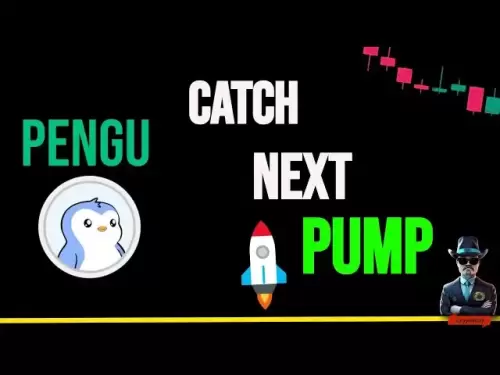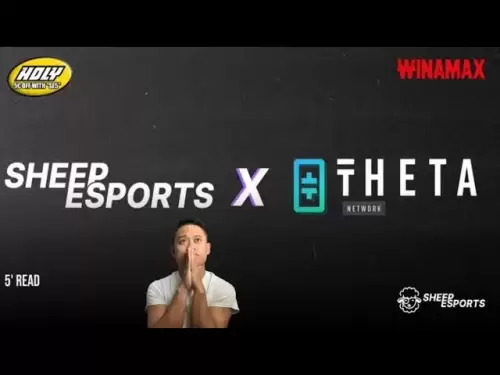-
 Bitcoin
Bitcoin $106,782.3966
-0.72% -
 Ethereum
Ethereum $2,406.7764
-1.16% -
 Tether USDt
Tether USDt $1.0005
0.02% -
 XRP
XRP $2.0918
-1.53% -
 BNB
BNB $644.5785
-0.17% -
 Solana
Solana $141.0925
-0.69% -
 USDC
USDC $1.0000
0.02% -
 TRON
TRON $0.2721
0.18% -
 Dogecoin
Dogecoin $0.1585
-1.26% -
 Cardano
Cardano $0.5497
-1.14% -
 Hyperliquid
Hyperliquid $35.8493
-1.58% -
 Bitcoin Cash
Bitcoin Cash $502.3089
2.20% -
 Sui
Sui $2.7092
3.87% -
 Chainlink
Chainlink $12.8551
-1.85% -
 UNUS SED LEO
UNUS SED LEO $9.0548
0.53% -
 Stellar
Stellar $0.2344
-0.85% -
 Avalanche
Avalanche $17.2676
-0.23% -
 Toncoin
Toncoin $2.8282
0.56% -
 Shiba Inu
Shiba Inu $0.0...01113
-1.14% -
 Litecoin
Litecoin $83.9593
-0.93% -
 Hedera
Hedera $0.1447
0.82% -
 Monero
Monero $306.9022
-2.07% -
 Bitget Token
Bitget Token $4.6358
3.42% -
 Dai
Dai $0.9999
0.01% -
 Ethena USDe
Ethena USDe $1.0001
0.02% -
 Polkadot
Polkadot $3.3211
0.06% -
 Uniswap
Uniswap $6.8775
0.75% -
 Pi
Pi $0.5664
-0.27% -
 Aave
Aave $256.0055
1.28% -
 Pepe
Pepe $0.0...09013
-3.24%
How to buy ETH at a low price through the OTC market?
OTC trading of ETH involves direct negotiation for potentially better prices, but requires thorough broker research and understanding of market factors to minimize risks.
Mar 30, 2025 at 10:21 pm

Understanding the OTC Market for ETH
The over-the-counter (OTC) market for cryptocurrencies, including Ethereum (ETH), operates outside of traditional exchanges. It's a decentralized marketplace where buyers and sellers negotiate directly, often involving larger transaction sizes. This direct negotiation can potentially lead to more favorable pricing, especially for significant ETH purchases. However, it also requires a higher level of understanding and trust compared to using centralized exchanges. The lack of a public order book means price discovery is less transparent.
Finding OTC Brokers and Dealers
Finding reputable OTC brokers and dealers is crucial. Many established cryptocurrency firms offer OTC services. Thorough research is essential to verify their legitimacy and track record. Look for brokers with a proven history, strong security measures, and positive client reviews. Consider factors like transaction fees, minimum trade sizes, and the speed of execution. Don't hesitate to compare multiple brokers before making a decision.
Navigating the Negotiation Process
Unlike exchanges with fixed prices, OTC trading involves direct negotiation. Be prepared to discuss your desired quantity of ETH and your price expectations. Brokers will likely counter with their offer, considering market conditions and their inventory. This back-and-forth negotiation requires patience and a clear understanding of the current market price of ETH. Remember, your negotiating power increases with the size of your order.
Understanding Pricing Factors in OTC ETH Trades
Several factors influence the price you'll pay for ETH in an OTC transaction. Market demand and supply play a significant role. High demand can drive prices up, while abundant supply can push them down. The broker's own inventory and operational costs also affect pricing. Furthermore, the payment method you choose might influence the final price. Some payment methods might attract slightly higher fees or premiums.
Payment Methods in OTC ETH Transactions
OTC transactions typically involve a variety of payment methods. These can range from bank wire transfers to stablecoins like USDC or USDT. The chosen method can influence the overall cost and speed of the transaction. Wire transfers are often preferred for larger transactions due to their security and efficiency, although they might take longer to process. Stablecoins offer faster settlement but might involve smaller transaction fees. Always discuss payment options with your chosen broker upfront.
Security Considerations in OTC ETH Trading
Security is paramount in any cryptocurrency transaction, especially in the OTC market. Choose brokers with robust security protocols and a strong reputation for protecting client funds. Verify the broker's identity and licensing information. Never share sensitive information unless you're certain of the broker's legitimacy. Use secure communication channels during negotiations and transactions. Be wary of scams and phishing attempts.
Step-by-Step Guide to Buying ETH via OTC
Here's a simplified step-by-step guide:
- Research and Select a Broker: Thoroughly research and select a reputable OTC broker.
- Contact the Broker: Contact the broker to discuss your desired ETH quantity and price expectations.
- Negotiate the Price: Negotiate the price and other transaction terms with the broker.
- Agree on Payment Method: Agree on a suitable payment method with the broker.
- Complete the Transaction: Complete the transaction and receive your ETH.
- Verify the Transaction: Verify that the transaction has been successfully completed.
Minimizing Risks in OTC ETH Purchases
While OTC trading offers potential price advantages, it's not without risks. Always prioritize working with established and reputable brokers to minimize the chances of scams or fraud. Never share your private keys or seed phrases with anyone. Understand the transaction fees and other costs associated with the trade. Be aware of market volatility and the potential for price fluctuations during the negotiation process.
Legal and Regulatory Considerations
The regulatory landscape for cryptocurrencies is constantly evolving. It's crucial to understand the legal and regulatory requirements in your jurisdiction regarding OTC cryptocurrency trading. Be aware of any applicable tax implications. Compliance with relevant laws and regulations is essential to avoid legal issues. Consult with legal and financial professionals if needed.
Frequently Asked Questions
Q: Is OTC trading suitable for small ETH purchases?
A: Generally, no. OTC markets typically cater to larger transactions due to the negotiation overhead involved. Exchanges are more suitable for smaller buys.
Q: How long does an OTC ETH transaction take?
A: The time varies depending on the payment method and the broker's processing speed. It can range from a few hours to several days.
Q: Are there fees involved in OTC ETH trading?
A: Yes, brokers usually charge fees, which can vary depending on the transaction size and payment method. These fees should be discussed upfront.
Q: What if the broker doesn't deliver the ETH after payment?
A: This is a risk inherent in OTC trading. Choosing a reputable and established broker significantly mitigates this risk, but it's not entirely eliminated. Thorough due diligence is crucial.
Q: How do I determine a fair price for ETH in an OTC transaction?
A: Research current market prices on major exchanges to establish a benchmark. However, remember that OTC prices might differ slightly due to volume and negotiation.
Q: Is it possible to buy ETH anonymously through the OTC market?
A: While OTC trading offers a degree of privacy compared to exchanges, complete anonymity is unlikely. Know Your Customer (KYC) and Anti-Money Laundering (AML) regulations often apply.
Disclaimer:info@kdj.com
The information provided is not trading advice. kdj.com does not assume any responsibility for any investments made based on the information provided in this article. Cryptocurrencies are highly volatile and it is highly recommended that you invest with caution after thorough research!
If you believe that the content used on this website infringes your copyright, please contact us immediately (info@kdj.com) and we will delete it promptly.
- Smart Investors Navigate the AI Token Frenzy: Bitcoin Switch and Beyond
- 2025-06-28 12:30:12
- Crypto in 2025: How Web3 AI is Poised to Dominate
- 2025-06-28 12:30:12
- Solana's Support Level Holds as MACD Crossover Hints at Potential Bullish Reversal
- 2025-06-28 12:50:12
- Cathie Wood's Ark Invest: Navigating Coinbase (COIN) and SoFi (SOFI) in a Shifting Market
- 2025-06-28 12:53:43
- Crypto 2025: Spotting the Top Coins with Real Utility
- 2025-06-28 12:42:12
- Pepe Price's Wild Ride: Cryptocurrency Milestone or Just Another Meme?
- 2025-06-28 12:42:13
Related knowledge

How to customize USDT TRC20 mining fees? Flexible adjustment tutorial
Jun 13,2025 at 01:42am
Understanding USDT TRC20 Mining FeesMining fees on the TRON (TRC20) network are essential for processing transactions. Unlike Bitcoin or Ethereum, where miners directly validate transactions, TRON uses a delegated proof-of-stake (DPoS) mechanism. However, users still need to pay bandwidth and energy fees, which are collectively referred to as 'mining fe...

USDT TRC20 transaction is stuck? Solution summary
Jun 14,2025 at 11:15pm
Understanding USDT TRC20 TransactionsWhen users mention that a USDT TRC20 transaction is stuck, they typically refer to a situation where the transfer of Tether (USDT) on the TRON blockchain has not been confirmed for an extended period. This issue may arise due to various reasons such as network congestion, insufficient transaction fees, or wallet-rela...

How to cancel USDT TRC20 unconfirmed transactions? Operation guide
Jun 13,2025 at 11:01pm
Understanding USDT TRC20 Unconfirmed TransactionsWhen dealing with USDT TRC20 transactions, it’s crucial to understand what an unconfirmed transaction means. An unconfirmed transaction is one that has been broadcasted to the blockchain network but hasn’t yet been included in a block. This typically occurs due to low transaction fees or network congestio...

How to check USDT TRC20 balance? Introduction to multiple query methods
Jun 21,2025 at 02:42am
Understanding USDT TRC20 and Its ImportanceUSDT (Tether) is one of the most widely used stablecoins in the cryptocurrency market. It exists on multiple blockchain networks, including TRC20, which operates on the Tron (TRX) network. Checking your USDT TRC20 balance accurately is crucial for users who hold or transact with this asset. Whether you're sendi...

What to do if USDT TRC20 transfers are congested? Speed up trading skills
Jun 13,2025 at 09:56am
Understanding USDT TRC20 Transfer CongestionWhen transferring USDT TRC20, users may occasionally experience delays or congestion. This typically occurs due to network overload on the TRON blockchain, which hosts the TRC20 version of Tether. Unlike the ERC20 variant (which runs on Ethereum), TRC20 transactions are generally faster and cheaper, but during...

The relationship between USDT TRC20 and TRON chain: technical background analysis
Jun 12,2025 at 01:28pm
What is USDT TRC20?USDT TRC20 refers to the Tether (USDT) token issued on the TRON blockchain using the TRC-20 standard. Unlike the more commonly known ERC-20 version of USDT (which runs on Ethereum), the TRC-20 variant leverages the TRON network's infrastructure for faster and cheaper transactions. The emergence of this version came as part of Tether’s...

How to customize USDT TRC20 mining fees? Flexible adjustment tutorial
Jun 13,2025 at 01:42am
Understanding USDT TRC20 Mining FeesMining fees on the TRON (TRC20) network are essential for processing transactions. Unlike Bitcoin or Ethereum, where miners directly validate transactions, TRON uses a delegated proof-of-stake (DPoS) mechanism. However, users still need to pay bandwidth and energy fees, which are collectively referred to as 'mining fe...

USDT TRC20 transaction is stuck? Solution summary
Jun 14,2025 at 11:15pm
Understanding USDT TRC20 TransactionsWhen users mention that a USDT TRC20 transaction is stuck, they typically refer to a situation where the transfer of Tether (USDT) on the TRON blockchain has not been confirmed for an extended period. This issue may arise due to various reasons such as network congestion, insufficient transaction fees, or wallet-rela...

How to cancel USDT TRC20 unconfirmed transactions? Operation guide
Jun 13,2025 at 11:01pm
Understanding USDT TRC20 Unconfirmed TransactionsWhen dealing with USDT TRC20 transactions, it’s crucial to understand what an unconfirmed transaction means. An unconfirmed transaction is one that has been broadcasted to the blockchain network but hasn’t yet been included in a block. This typically occurs due to low transaction fees or network congestio...

How to check USDT TRC20 balance? Introduction to multiple query methods
Jun 21,2025 at 02:42am
Understanding USDT TRC20 and Its ImportanceUSDT (Tether) is one of the most widely used stablecoins in the cryptocurrency market. It exists on multiple blockchain networks, including TRC20, which operates on the Tron (TRX) network. Checking your USDT TRC20 balance accurately is crucial for users who hold or transact with this asset. Whether you're sendi...

What to do if USDT TRC20 transfers are congested? Speed up trading skills
Jun 13,2025 at 09:56am
Understanding USDT TRC20 Transfer CongestionWhen transferring USDT TRC20, users may occasionally experience delays or congestion. This typically occurs due to network overload on the TRON blockchain, which hosts the TRC20 version of Tether. Unlike the ERC20 variant (which runs on Ethereum), TRC20 transactions are generally faster and cheaper, but during...

The relationship between USDT TRC20 and TRON chain: technical background analysis
Jun 12,2025 at 01:28pm
What is USDT TRC20?USDT TRC20 refers to the Tether (USDT) token issued on the TRON blockchain using the TRC-20 standard. Unlike the more commonly known ERC-20 version of USDT (which runs on Ethereum), the TRC-20 variant leverages the TRON network's infrastructure for faster and cheaper transactions. The emergence of this version came as part of Tether’s...
See all articles























































































